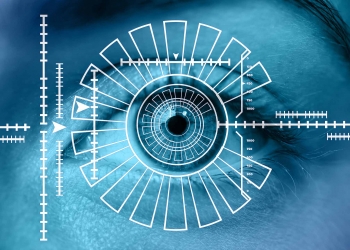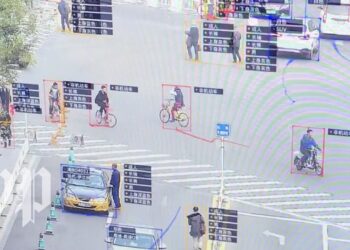The European Commission strengthens the European Union’s cybersecurity capabilities, capacity to deter and mitigate cyber-threats and incidents, by employing the latest technologies. The EU will make €11 million of funding available for 22 new projects. The projects, which have been selected following a recent call for proposals under the Connecting Europe Facility programme, will support various cybersecurity organisations in 18 Member States.
The beneficiaries of the funding include Computer Security Incident Response teams, operators of essential services in the health, energy, transport and other sectors, as well as bodies dealing with the cybersecurity certification and testing, as defined in the EU Cybersecurity Act. They will start working after the summer on tools and skills necessary to comply with the requirements set by the NIS Directive and the Cybersecurity Act, while at the same time they will engage in activities aimed to enhance cooperation at the EU level.
So far the EU has funded almost €47.5 million to reinforce EU cybersecurity between 2014 and 2020, through the Connecting Europe Facility programme. Furthermore, over €1 billion under the Digital Europe Programme will be directed towards the areas of focus of the new EU Cybersecurity Strategy.
The new EU Cybersecurity Strategy
As a key component of Shaping Europe’s Digital Future, the Recovery Plan for Europe and the EU Security Union Strategy, the Strategy will bolster Europe’s collective resilience against cyber threats and help to ensure that all citizens and businesses can fully benefit from trustworthy and reliable services and digital tools. Whether it is the connected devices, the electricity grid, or the banks, planes, public administrations and hospitals Europeans use or frequent, they deserve to do so with the assurance that they will be shielded from cyber threats.
The new Cybersecurity Strategy also allows the EU to step up leadership on international norms and standards in cyberspace, and to strengthen cooperation with partners around the world to promote a global, open, stable and secure cyberspace, grounded in the rule of law, human rights, fundamental freedoms and democratic values.
Trust and cybersecurity at the heart of the EU Digital Decade
The new Cybersecurity Strategy aims to safeguard a global and open Internet, while at the same time offering safeguards, not only to ensure security but also to protect European values and the fundamental rights of everyone. Building upon the achievements of the past months and years, it contains concrete proposals for regulatory, investment and policy initiatives, in three areas of EU action:
Resilience, technological sovereignty and cybersecurity leadership
Under this strand of action the Commission proposes to reform the rules on the security of network and information systems, under a Directive on measures for high common level of cybersecurity across the Union (revised NIS Directive or ‘NIS 2′), in order to increase the level of cyber resilience of critical public and private sectors: hospitals, energy grids, railways, but also data centres, public administrations, research labs and manufacturing of critical medical devices and medicines, as well as other critical infrastructure and services, must remain impermeable, in an increasingly fast-moving and complex threat environment.
The Commission also proposes to launch a network of Security Operations Centres across the EU, powered by artificial intelligence (AI), which will constitute a real ‘cybersecurity shield’ for the EU, able to detect signs of a cyberattack early enough and to enable proactive action, before damage occurs. Additional measures will include dedicated support to small and medium-sized businesses (SMEs), under the Digital Innovation Hubs, as well as increased efforts to upskill the workforce, attract and retain the best cybersecurity talent and invest in research and innovation that is open, competitive and based on excellence.
Building operational capacity to prevent, deter and respond
The Commission is preparing, through a progressive and inclusive process with the Member States, a new Joint Cyber Unit, to strengthen cooperation between EU bodies and Member State authorities responsible for preventing, deterring and responding to cyber-attacks, including civilian, law enforcement, diplomatic and cyber defence communities. The High Representative puts forward proposals to strengthen the EU Cyber Diplomacy Toolbox to prevent, discourage, deter and respond effectively against malicious cyber activities, notably those affecting our critical infrastructure, supply chains, democratic institutions and processes. The EU will also aim to further enhance cyber defence cooperation and develop state-of-the-art cyber defence capabilities, building on the work of the European Defence Agency and encouraging Member States to make full use of the Permanent Structured Cooperation and the European Defence Fund.
Advancing a global and open cyberspace through increased cooperation
The EU will step up work with international partners to strengthen the rules-based global order, promote international security and stability in cyberspace, and protect human rights and fundamental freedoms online. It will advance international norms and standards that reflect these EU core values, by working with its international partners in the United Nations and other relevant fora. The EU will further strengthen its EU Cyber Diplomacy Toolbox, and increase cyber capacity-building efforts to third countries by developing an EU External Cyber Capacity Building Agenda. Cyber dialogues with third countries, regional and international organisations as well as the multi-stakeholder community will be intensified. The EU will also form an EU Cyber Diplomacy Network around the world to promote its vision of cyberspace.
The EU’s digital transition over the next seven years
The EU is committed to supporting the new Cybersecurity Strategy with an unprecedented level of investment in the EU’s digital transition over the next seven years, through the next long-term EU budget, notably the Digital Europe Programme and Horizon Europe, as well as the Recovery Plan for Europe. Member States are thus encouraged to make full use of the EU Recovery and Resilience Facility to boost cybersecurity and match EU-level investment. The objective is to reach up to €4.5 billion of combined investment from the EU, the Member States and the industry, notably under the Cybersecurity Competence Centre and Network of Coordination Centres, and to ensure that a major portion gets to SMEs.
The Commission also aims at reinforcing the EU’s industrial and technological capacities in cybersecurity, including through projects supported jointly by EU and national budgets. The EU has the unique opportunity to pool its assets to enhance its strategic autonomy and propel its leadership in cybersecurity across the digital supply chain (including data and cloud, next generation processor technologies, ultra-secure connectivity and 6G networks), in line with its values and priorities.
Cyber and physical resilience of network, information systems and critical entities
Existing EU-level measures aimed at protecting key services and infrastructures from both cyber and physical risks need to be updated. Cybersecurity risks continue to evolve with growing digitalisation and interconnectedness. Physical risks have also become more complex since the adoption of the 2008 EU rules on critical infrastructure, which currently only cover the energy and transport sectors. The revisions aim at updating the rules following the logic of the EU’s Security Union strategy, overcoming the false dichotomy between online and offline and breaking down the silo approach.
Securing the next generation of networks: 5G cybersecurity and beyond
Under the new Cybersecurity Strategy, Member States, with the support of the Commission and ENISA – the European Cybersecurity Agency, will focus to complete the implementation of the EU 5G Toolbox. It is a comprehensive and objective risk-based approach for the security of 5G and future generations of networks.
According to a report published today, on the impact of the Commission Recommendation on the Cybersecurity of 5G networks and the progress in implementing the EU toolbox of mitigating measures, since the progress report of July 2020, most Member States are already well on track of implementing the recommended measures. They should now aim to complete their implementation by the second quarter of 2021 and ensure that identified risks are adequately mitigated, in a coordinated way, particularly with a view to minimising the exposure to high-risk suppliers and avoiding dependency on these suppliers. The Commission also sets out today key objectives and actions aimed at continuing the coordinated work at EU-level.















